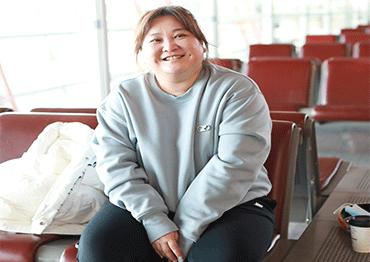Jia Ling is China’s highest-grossing female director, with her two films Hi, Mom and YOLO pulling in a total of 8.8 billion yuan (US$1.2b) at the box office.
Hi, Mom is a semi-autobiographical film that follows the fantastic journey of Jia Xiaoling (Jia Ling), a young woman who is transported back to 1981 where she befriends her mother Li Huanying (Zhang Xiaofei) to better understand her as a person. The story is inspired by Jia’s own memories of her mother Li Huanying, who passed away when Jia was 19.
Film critic He Lingzheng likened Jia’s cinematic style to reality television. He points out that in promoting her two films, Jia’s team centered their marketing strategy around their autobiographical elements – her relationship with her late mother in Hi, Mom and her weight loss journey in YOLO. In blurring the lines between reality and fiction, these films give the audience the sensation of watching a “variety show” starring Jia Ling, He said.
While many actors undergo drastic physical changes to prepare for roles, few films have marketed weight loss so heavily. “It focuses the audience too much on Jia Ling instead of the film,” He told our reporter.
Controversy aside, Jia has emerged as China’s most influential female director, amplifying women’s voices and perspectives in an industry traditionally dominated by male filmmakers.
She leads a wave of female Chinese directors making a splash in the cinematic landscape for their focus on women’s issues. For example, Yin Ruoxin’s Sister (2021) explores the emotional journey of a young girl tasked with raising her younger brother following the death of their parents, forcing her to sacrifice her own dreams and career aspirations.
Similarly, Yang Lina’s Song of Spring (2022) sheds light on the struggles of aging women through the story of a mother and her middle-aged daughter diagnosed with Alzheimer’s, who rely solely on each other for support. Qin Haiyan’s The Woman in the Storm (2023) tackles the issue of domestic violence, depicting the harrowing journey of a successful career woman who, after enduring prolonged abuse, is driven to commit a drastic act.
Established in 2015 by the China Film Director’s Guild (CFDG), the Green Onion Project provides support and funding to young female filmmakers. Over the past nine years, the project has helped nurture notable works such as The Crossing (2018) by Bai Xue, which offers a poignant portrayal of a teenage girl’s inner struggles, Shen Yu’s The Old Town Girls (2020), a crime drama exploring a complex mother-daughter dynamic, and Geng Zihan’s A Song Sung Blue (2023), a touching portrayal of friendship and love between two adolescent girls within the LGBTQ+ community.
The project was started by Li Shaohong, 68, president of CFDG and pioneering female director known for TV series Palace of Desire (2000) and films such as Baober in Love (2004).
“Female directors utilize filmmaking as a medium to convey their unique subjectivity and perspectives, and they know exactly what they want to express,” Li remarked at the 4th Hainan International Film Festival on December 22, 2022.
“They are very active and engaging, as they deeply cherish these hard-won opportunities for self-expression. We can see a burgeoning cultural movement both at home and abroad where an increasing number of women are excelling in articulating themselves through diverse forms of expression. Their voices and narratives are increasingly valued,” Li said.

 Old Version
Old Version




